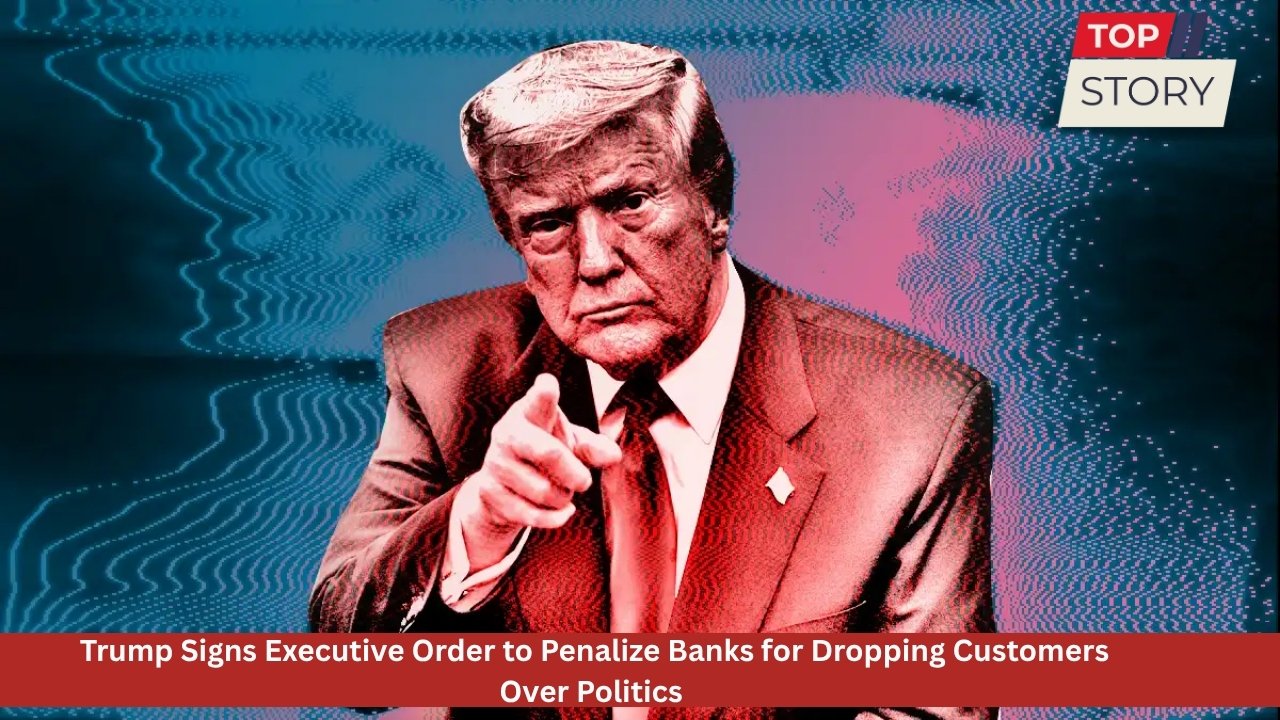If your bank ever shut down your account because of your political beliefs, it might soon face consequences. President Donald Trump has signed an executive order that punishes financial institutions for “de-banking” customers based on their political views. The order specifically targets banks accused of cutting ties with individuals, businesses, or nonprofits over their political or ideological positions. While this may seem like a narrow political issue, it could have far-reaching effects on how banks select their clients — and whether your own account could be at risk in the future.
Trump has long argued that U.S. banks discriminate against conservatives. In recent months, he has accused lenders of refusing to do business with him and his allies, claiming they were penalized for their political beliefs.
The politics behind ‘political de-banking’
The effort extends well beyond Trump himself.
Congressional Republicans and GOP-led states argue that banks and payment processors are increasingly distancing themselves from industries they view as controversial—such as gun manufacturers, fossil fuel companies, and conservative advocacy groups—citing “reputational risk.” In 2023, 19 state attorneys general accused JPMorgan Chase of discrimination, including shutting down accounts linked to a conservative religious nonprofit.
Trump issued a warning to major banks during his January 2025 speech at the World Economic Forum in Davos, Switzerland. “I hope you start opening your bank to conservatives, because many conservatives complain that the banks are not allowing them to do business within the bank, and that included a place called Bank of America,” Trump said, before directly addressing JPMorgan CEO Jamie Dimon: “You and Jamie and everybody, I hope you’re gonna open your bank to conservatives.”
What the Banks Say
Major banks have largely denied claims that they target clients for political reasons. Following Trump’s Davos remarks, JPMorgan stated that it does not discriminate based on political or religious beliefs and reaffirmed its commitment to serving customers “regardless of political, social or religious viewpoints.”
When banks sever ties with certain clients or industries, the decision often centers on managing both financial and reputational risk.
*Reputational risk* refers to potential damage to a company’s public image that could threaten profits. For example, a bank might choose not to finance a coal plant or weapons manufacturer if it fears public backlash could harm shareholder value or drive customers away.
Historically, reputational risk was viewed as a component of responsible corporate governance, alongside environmental, social, and governance (ESG) principles. However, under the Trump administration, that concept has turned into a political flashpoint.
When Banks Can Refuse Service
Even without political factors at play, banks are both permitted and, in some cases, required to deny service under specific circumstances.
Federal law prohibits discrimination based on race, religion, national origin, sex, or other protected categories. At the same time, banks must follow anti-money laundering and counterterrorism regulations, allowing them to reject customers who present legal or regulatory risks.
They can also close accounts for reasons such as suspected fraud, unpaid fees, or if a customer’s activities exceed the bank’s acceptable risk threshold.
How Trump’s Order Could Change the Rules
Trump’s executive order would impose financial penalties on banks that close accounts for political or ideological reasons. This move could compel institutions to justify account closures strictly on financial or legal grounds, rather than relying on subjective judgments about reputational harm. The order also calls for a regulatory review to determine whether banks have had “any past or current, formal or informal” policies that led to “politicized or unlawful debanking.”
The challenge lies in defining and enforcing what counts as a political reason. Would it apply to a bank refusing to work with a pro-gun group after a mass shooting? Or to one cutting ties with an oil company following an environmental disaster? These questions could lead to years of legal disputes.
For customers, the order may offer added protection from being dropped for ideological reasons. However, it could also make banks more hesitant to work with potentially risky clients, fearing accusations of political bias and the threat of fines. That caution might slow account approvals for certain nonprofits, advocacy groups, or politically active businesses.
Why This Matters to You
Most Americans will never experience “political de-banking.” However, if you own a business, donate to controversial causes, or work in a politically sensitive industry, Trump’s order could influence how banks handle your accounts.
On one hand, it may safeguard your right to keep a bank account without worrying about ideological discrimination. On the other, it could make banks more reluctant to work with organizations they believe might spark political backlash—potentially reducing options and increasing costs.

